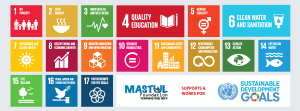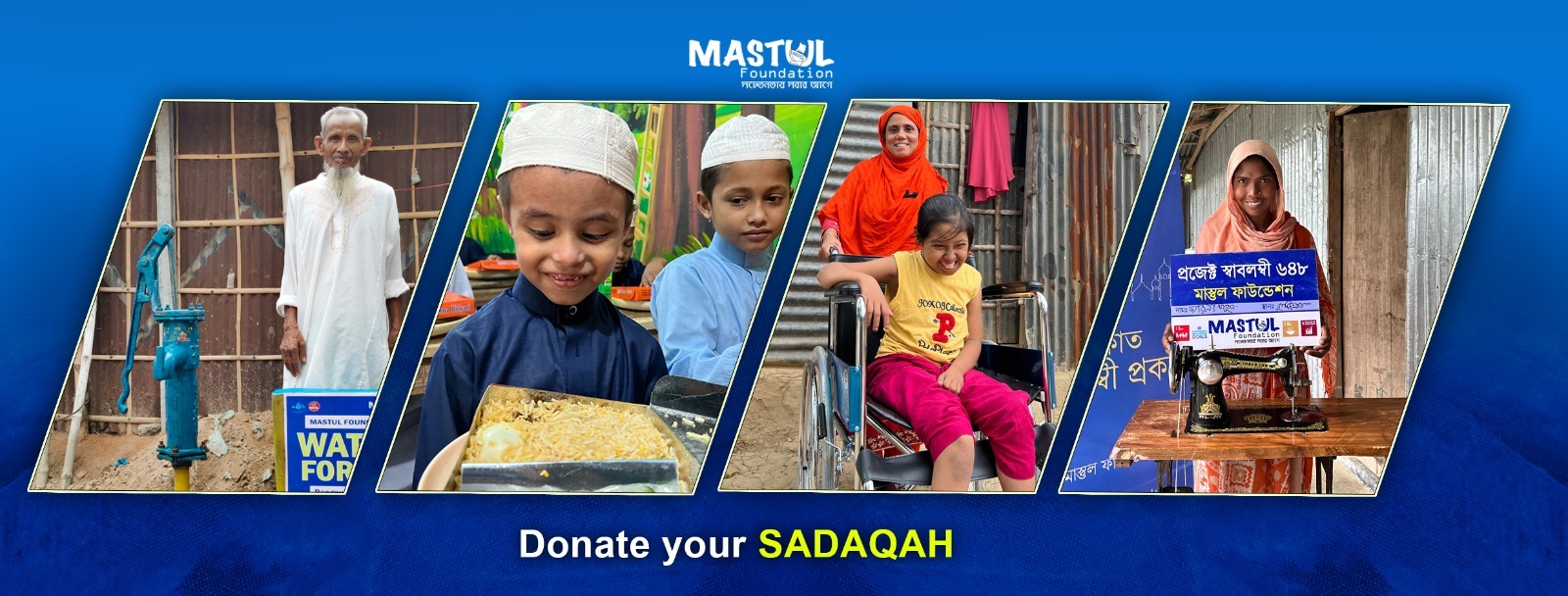MASTUL works to achieve sustainable development goals
- Mastul Foundation |
- March 25, 2020
WHAT ARE THE SUSTAINABLE DEVELOPMENT GOALS?
The Sustainable Development Goals (SDGs), otherwise known as the Global Goals, are a universal call to action to end poverty, protect the planet and ensure that all people enjoy peace and prosperity.
These 17 Goals build on the successes of the Millennium Development Goals, while including new areas such as climate change, economic inequality, innovation, sustainable consumption, peace and justice, among other priorities. The goals are interconnected – often the key to success on one will involve tackling issues more commonly associated with another.
The SDGs work in the spirit of partnership and pragmatism to make the right choices now to improve life, in a sustainable way, for future generations. They provide clear guidelines and targets for all countries to adopt in accordance with their own priorities and the environmental challenges of the world at large. The SDGs are an inclusive agenda. They tackle the root causes of poverty and unite us together to make a positive change for both people and planet. “Supporting the 2030 Agenda is a top priority for UNDP,” said UNDP Administrator Helen Clark. “The SDGs provide us with a common plan and agenda to tackle some of the pressing challenges facing our world such as poverty, climate change and conflict. UNDP has the experience and expertise to drive progress and help support countries on the path to sustainable development.”
For more information on the background of the SDGs, click here.

WHAT IS MASTUL FOUNDATION’S ROLE?
MASTUL Foundation is working for SDG’s Goal 4 and Goal 6. It is committed to work for better education and safe water for underprivileged people and their community.
GOAL : 4 – ENSURE INCLUSIVE AND EQUITABLE
QUALITY EDUCATION AND PROMOTE LIFELONG LEARNING OPPORTUNITIES FOR ALL

First, the bad news on education. Poverty, armed conflict and other emergencies keep many, many kids around the world out of school. In fact, in developing regions, kids from the poorest households are four
times more likely to be out of school than those of the richest households. Now for some good news. Since 2000, there has been enormous progress on the goal to provide primary education to all children world-wide. The primary school enrollment rate in developing regions reached 91%. By measures in any school, that’s a good grade. Now, let’s get an even better grade for all kids and achieve the goal of universal primary and secondary education, affordable vocational training, access to higher education and more.
Ensure inclusive and quality education for all and promote lifelong learning
Obtaining a quality education is the foundation to improving people’s lives and sustainable development. Major progress has been made towards increasing access to education at all levels and increasing enrollment rates in schools particularly for women and girls. Basic literacy skills have improved tremendously, yet bolder efforts are needed to make even greater strides for achieving universal education goals. For example, the world has achieved equality in primary education between girls and boys, but few countries have achieved that target at all levels of education.
GOAL : 6 – ENSURE AVAILABILITY AND SUSTAINABLE
MANAGEMENT OF WATER AND SANITATION FOR ALL

Everyone on earth should have access to safe and affordable drinking water. That’s the goal for 2030. While many people around the world take clean drinking water and sanitation for granted, many others
don’t. Water scarcity affects more than 40 percent of people around the world, and that number is projected to go even higher as a result of climate change. If we continue the path we’re on, by 2050 at least one in four people are likely to be affected by recurring water shortages. But we can take a new path—more international cooperation, protecting wetlands and rivers, sharing water-treatment technologies and more—that leads to accomplishing this Goal.
Ensure availability and sustainable management of water and sanitation for all
Clean, accessible water for all is an essential part of the world we want to live in. There is sufficient fresh water on the planet to achieve this. But due to bad economics or poor infrastructure, every year millions of people, most of them children, die from diseases associated with inadequate water supply, sanitation and hygiene.
Water scarcity, poor water quality and inadequate sanitation negatively impact food security, livelihood choices and educational opportunities for poor families across the world. Drought afflicts some of the world’s poorest countries, worsening hunger and malnutrition.
By 2050, at least one in four people is likely to live in a country affected by chronic or recurring shortages of fresh water.

